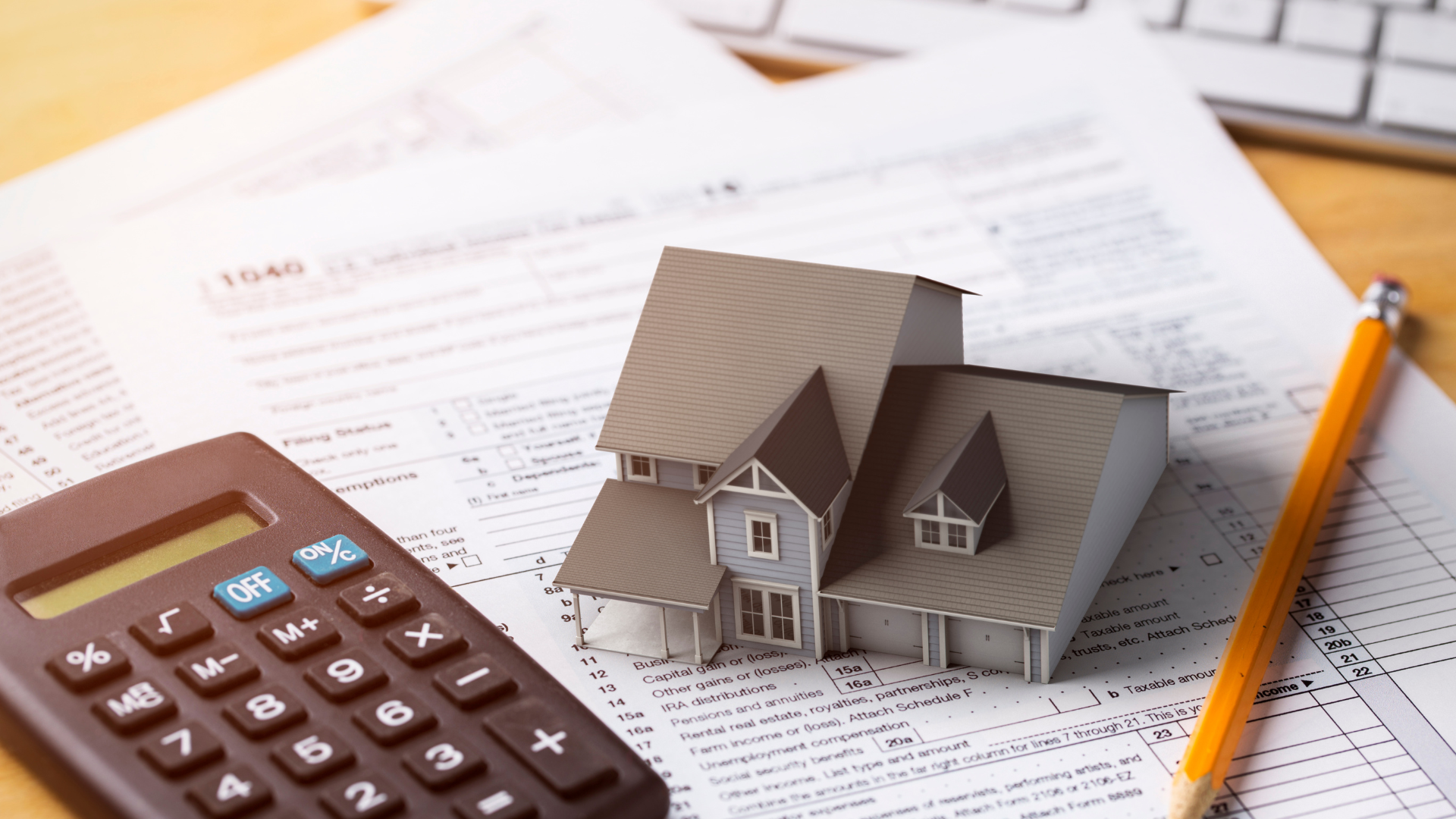How Much Will an Interest Only Mortgage Cost You?

We all love the idea of saving money each month, and with an interest-only mortgage, that’s exactly what you get – smaller payments for now.
But before you jump in, it’s important to know what you’re really signing up for.
Let’s take a look at how much an interest-only mortgage could set you back, and whether it’s the right choice for you.
How Much Does an Interest-Only Mortgage Cost?
Interest-only mortgages can be a bit tricky. The monthly payments are lower because you’re only paying the interest on the loan, not the actual loan amount (known as the principal).
That’s a bonus for your cash flow in the short term, but, at the end of the term, you’ll still owe the full amount you borrowed.
Let’s say you’ve got a £100,000 interest-only mortgage. With a 5% interest rate over 25 years, your monthly payments would be around £417.
Sounds manageable, right?
But by the end of the term, you’d have paid about £125,091 in interest, and you’d still need to cough up the original £100,000.
On the flip side, if you were on a repayment mortgage, your monthly payments would be higher at about £585, but you’d pay less overall in interest (£75,441), and by the end of the term, you’d owe nothing.
So, while interest-only mortgages save you money each month, they end up costing more in the long run.
What Affects the Cost of Interest Only Mortgages?
Several factors determine how much you’ll pay over the life of your interest-only mortgage:
Term Length
A longer term means you’ll pay interest for more years, increasing your total cost. You might have lower payments now, but you’ll be paying that interest for the entire term.
If you want to switch to a repayment mortgage down the line, you can—just be prepared for those payments to go up.
Deposit Amount
With interest-only mortgages, lenders are a bit more cautious. They often require a higher deposit to balance the risk.
Most lenders will cap the loan-to-value (LTV) ratio at around 75%, but the more you can put down upfront, the better rate you might get.
Interest Rate
Your rate is key to determining your payments. Even a small difference can make a big impact over time.
That’s why it’s worth shopping around—or better yet, getting a broker to do it for you.
Keep in mind that interest-only rates are often higher than standard repayment mortgages because of the increased risk to lenders.
You might also want to consider if you’re better off with a fixed or variable rate, as this can affect your monthly payments and overall cost.
Lender Policies
Different lenders have different criteria and may offer varied terms depending on your financial situation, employment status, and credit history.
Some lenders might be more flexible with LTV ratios or offer lower rates if you have a strong credit profile.
It’s worth comparing what each lender can offer or getting a broker to help you find the best match for your circumstances.
How To Calculate Interest-Only Mortgage Costs
To calculate an interest only mortgage, use our general mortgage calculator. This will show you your estimated monthly repayments when you secured an interest only deal.
If you want a clearer picture, it’s best to get advice tailored to your situation.
Here’s a quick example to get an idea:
For a £200,000 loan at a 5% interest rate over 25 years, you’d be looking at:
- Monthly Payment: £834
- Total Interest Paid: £250,200
- Balance Owed at End of Term: £200,000
See how that adds up? You’d pay £250,200 in interest over the 25 years without touching the original £200,000 loan.
That’s why it’s crucial to know what you’re getting into.
Other Costs to Consider
There’s more to it than just the interest. Here are some extra costs to keep in mind:
- Arrangement Fees. Setting up an interest-only mortgage usually comes with an arrangement fee, sometimes called a product fee. This can be as high as £2,000, and you can either pay it upfront or add it to your mortgage balance.
- Valuation Fees. Lenders will want a valuation to ensure the property is worth what you’re borrowing. Costs vary, and while some lenders throw it in for free, others charge a few hundred pounds.
- Stamp Duty. If you’re buying a property worth over £125,000, you’ll need to pay Stamp Duty. This is a tiered tax, so the more expensive the property, the more you’ll pay.
- Legal Fees. Conveyancing costs can add up, sometimes exceeding £1,000. This covers everything legal, from solicitor’s fees to transfer charges.
- Broker Fees. If you’ve got a broker hunting down the best deal for you, they’ll likely charge a fee. This could be a flat rate or a percentage of your mortgage amount, usually between £500 and £1,500.
- Early Repayment Charges (ERCs). Planning to pay off your mortgage early or switch to a new deal before the end of your fixed term? Hold your horses—you might have to pay an early repayment charge. This could be a percentage of what’s left on your mortgage, so it’s worth checking the fine print.
- Mortgage Account Fees. Some lenders love a good admin fee for managing your account. This can range from £100 to £300, and some might charge it annually.
- Buildings Insurance. It’s not specific to interest-only mortgages, but you’ll need it to cover any major damage to your property. The cost depends on your property’s size and location.
- Life Insurance or Income Protection. While not always required, having cover in place to protect your mortgage payments can be a smart move. These policies can add to your monthly outgoings, but they offer peace of mind if life throws a curveball your way.
Is It Worth the Extra Cost?
For some people, yes. Interest-only mortgages can be a savvy choice, but they’re not for everyone.
They’re great for:
- Property Developers. If you’re planning to buy, refurbish, and sell a property, lower monthly payments can help with cash flow. And if the property’s value goes up, you can pay off the loan and pocket the profit.
- Investors with Future Cash. If you expect a financial windfall—inheritance, selling another property, or cashing in investments—an interest-only mortgage could make sense. You get lower payments now and can pay off the principal when you’ve got the funds.
- Those Needing Lower Payments Now. Maybe you need to keep monthly outgoings low for a few years while you invest in a business or your kids’ education. Just remember, you’ll still need a plan to pay off that big lump sum at the end.
Key Takeaways
- Interest-only mortgages offer lower monthly payments because you only pay the interest, not the loan amount.
- You’ll still owe the full loan amount at the end of the term, making the overall cost higher in the long run.
- Factors affecting costs include term length, deposit amount, interest rate, and lender policies.
- Expect additional costs like arrangement fees, valuation fees, Stamp Duty, legal fees, and broker fees.
- Interest-only mortgages can be suitable for property developers, investors, or those needing lower payments now.
- Always have a clear plan to repay the full loan amount before choosing an interest-only mortgage.
The Bottom Line
Interest-only mortgages can be a great option, but they’re not for everyone.
While lower monthly payments can feel like a win, you’ll want to think about the long game too. Understanding the total cost and how you’ll manage that big bill at the end is key.
This is where a qualified mortgage broker can be your best mate, guiding you through the maze and helping you make a decision that suits your situation. They can:
- Find deals that you won’t see on comparison sites
- Get expert advice without the mortgage jargon
- Tailored guidance based on your finances and future goals
- Help with all that tedious paperwork—phew!
- Match you with lenders who are the best fit for your needs
If you’re looking to save time and stress in your search for the right broker, get in touch with us. We’ll connect you with a reliable broker who can help you solve your specific mortgage situation.
Get Matched With Your Dream Mortgage Advisor...

Frequently asked questions
Can I switch from interest-only to repayment?
Yes, most lenders allow you to switch to a repayment mortgage. It’s a good idea if you want to start paying off the principal, but keep in mind your monthly payments will increase.
What happens if I can’t pay off the loan at the end?
If you can’t repay the loan, you may need to sell the property or remortgage. It’s important to have a plan in place before taking out an interest-only mortgage.
Are there alternatives to interest-only mortgages?
Yes, alternatives like part-and-part mortgages (where you pay some interest and some principal) or standard repayment mortgages may be more suitable depending on your financial situation.
How much would a £100,000 interest-only mortgage cost?
With a 5% interest rate over 25 years, you’d pay around £417 per month, with £125,091 in total interest paid and the full £100,000 still to pay off at the end.




